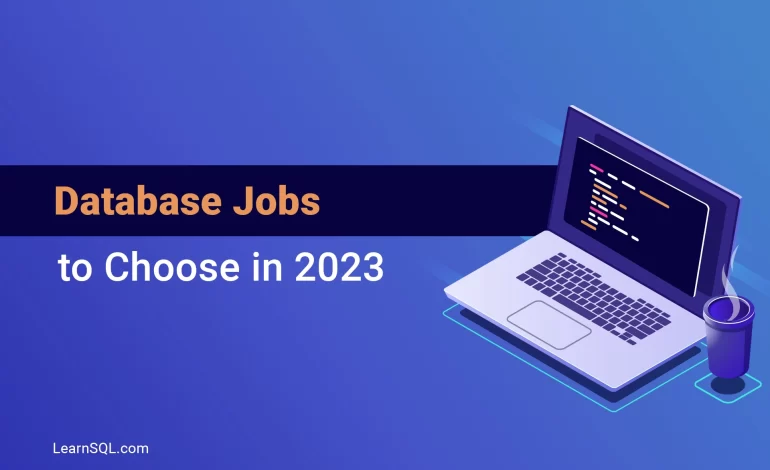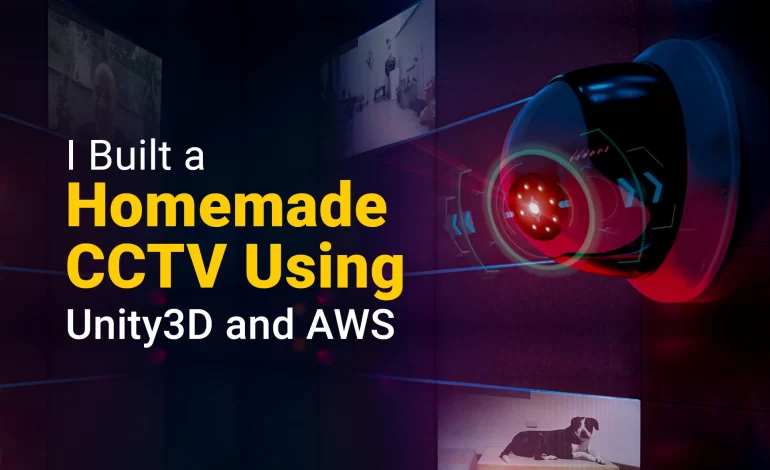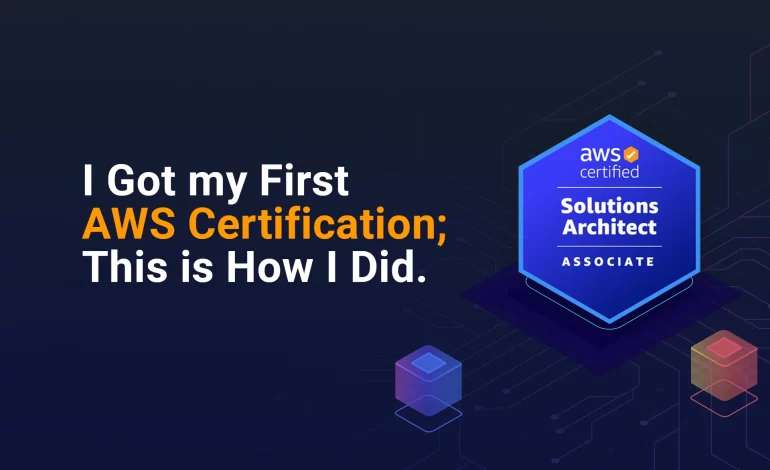
I casually began my journey with Amazon Web Services ten years ago when my employer asked me to migrate an on-premise Java application I developed to the cloud. At this time, I had very little idea of what Cloud Computing was; but I managed to make the java application work thanks to an EC2 instance.
Since then, I have had the opportunity to know many services in a professional way but also as a hobby. Last year, following the advice of my friend Xavier Rigoulet, I began to write on Medium for fun, and then I made my own blog. I usually write there about AWS, Python, and Unity3D, with which I worked for several years.
At this point, I felt that I had acquired a lot of AWS knowledge, and the remote idea of getting an AWS certification seemed to be more feasible every day. So, in September 2022, I began to look seriously at it.
Choosing The Correct AWS Certification
Amazon Web Services provides 12 certifications, each with a different proposal and required skills. Although I’m a developer, I’m seriously thinking of making a change in my career by becoming a Cloud Architect. So in my case, the Solutions Architect certifications are a perfect fit.
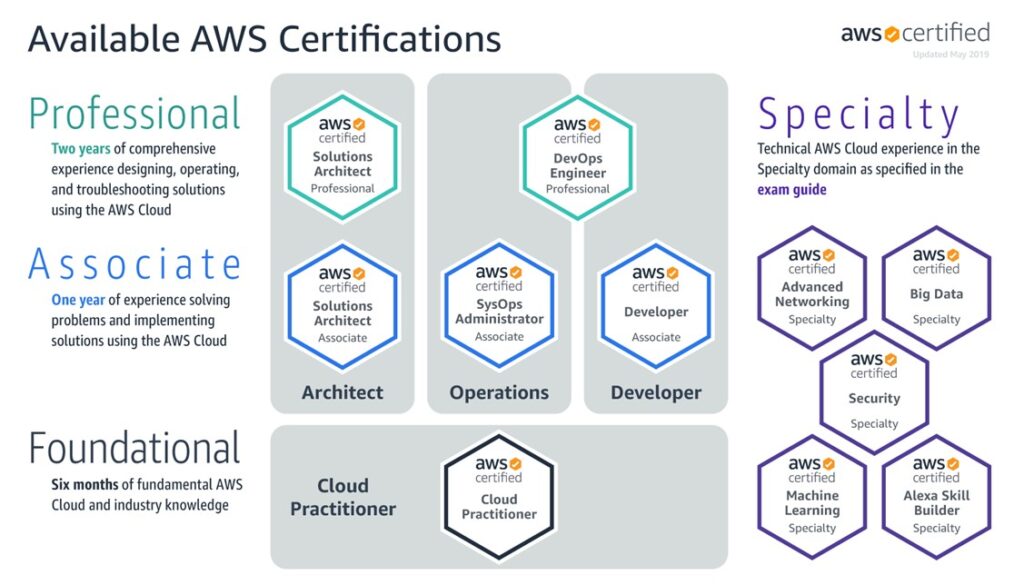
Putting aside the Specialty certifications, there is an order to get each certification, beginning with the Cloud Practitioner certification. So, in my case, the correct certifications path would be Cloud Practitioner ⮕ Solutions Architect Associate ⮕ Solutions Architect Professional.
But, well, I’m stubborn, so I decided to go directly for the Solution Architect Associate (code name SAA-C03).
Overview of the AWS Certified Solutions Architect — Associate Certification
Since I had no idea how was the certification exam, I wanted first to know the exact required skills and the structure of the exam before beginning to study.
I began to look for Solutions Architect Associate practice exams online. I had no particular preference for any online learning platform, so I chose one of the most popular practice exam courses on Udemy with excellent user reviews. $8 seemed to be a fair deal.
The course is composed of six practice tests. I started with the first one without any preparation, and I got the following result:
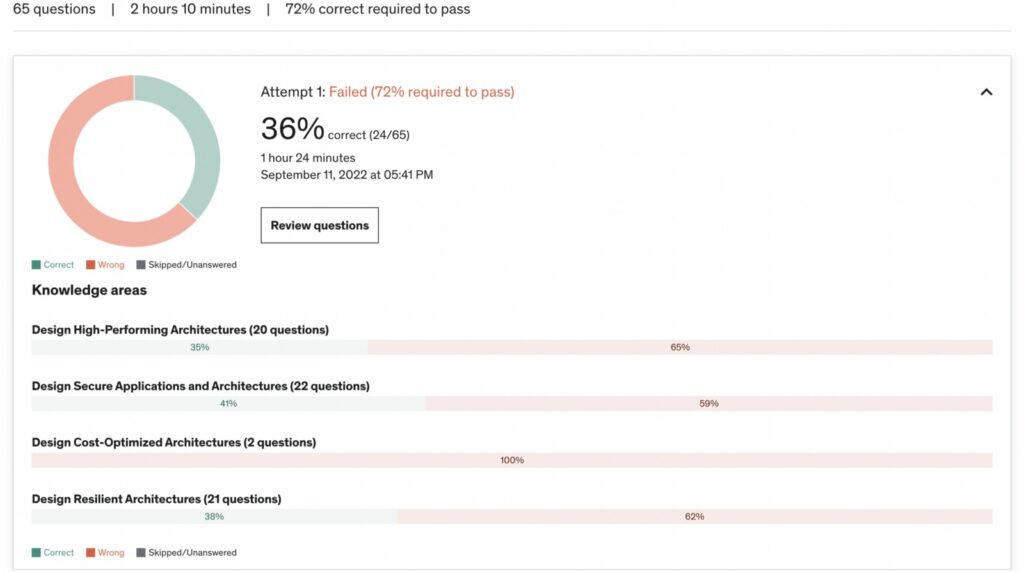
OMG, I felt so bad after this! Such a low score! I felt so confident about my AWS skills; this exam just gave me a big slap. After recovering from the emotional damage, I figured out the following at a first glance:
- The exam has 65 questions that can be answered in 130 minutes (2 hours and 10 minutes).
- 72% of correct answers are required to pass, which is approximately 47 correct answers out of 65.
- There are two types of questions: single-select multiple-choice questions and multi-select multiple-choice questions. Be careful with the multi-select questions: you may be asked to select two or three answers.
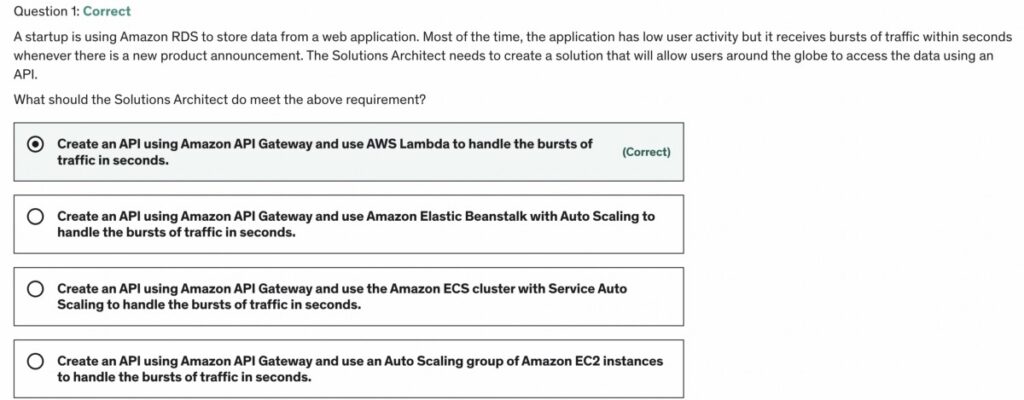
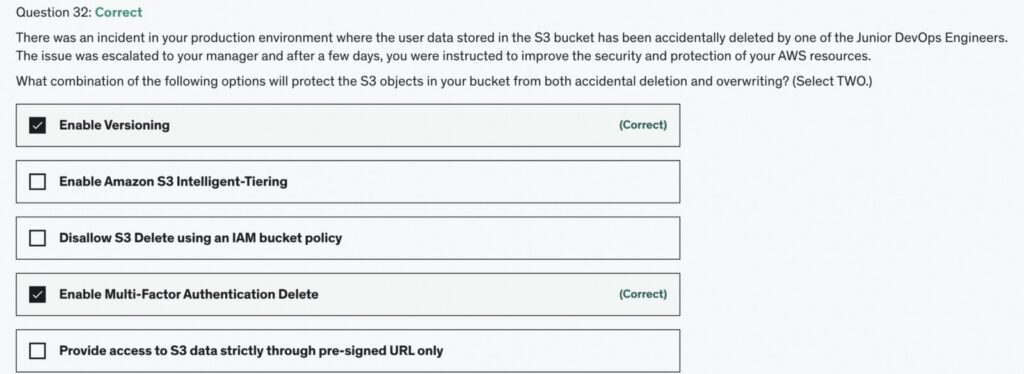
- Four knowledge areas are required: designing High-Performing Architectures, designing Secure Applications and Architectures, designing Cost-Optimized Architectures, and designing Resilient Architectures.
- Some questions are very theoretical: you could be asked for the default CloudFront TTL, or the maximum Lambda running time, for example. Other questions are very practical: you will be asked to solve real-life cases.
- Out of four proposed answers, there is generally one ridiculously wrong answer (it can even make you laugh) and three good-looking answers. You have to choose the better answer by reading the question carefully: it can contain important keywords such as cost-effective, cheaper, fastest way, cloud-agnostic, fault-tolerant, etc.
- You don’t have to know all AWS services, just the main ones: EC2, Lambda, API Gateway, Route 53, S3, EBS, RDS, DynamoDB, SQS, and CloudFront, among others. You may be asked about other services like Macie, Athena, or Rekognition, but don’t worry; you just need to know what it is for, not their exact functioning.
Studying for the AWS Certified Solutions Architect — Associate Certification
At this point, one thing was obvious: I had to study.
The first idea that came into my mind was reviewing each question of the Udemy practice tests, analyzing why I correctly or incorrectly answered them, and going deeper into each AWS service or concept. Hopefully, the practice tests come with an exhaustive explanation for each answer, which always leads to the AWS documentation. Additionally, I used a notebook to take notes of information or concepts I found relevant: it helped me to memorize.
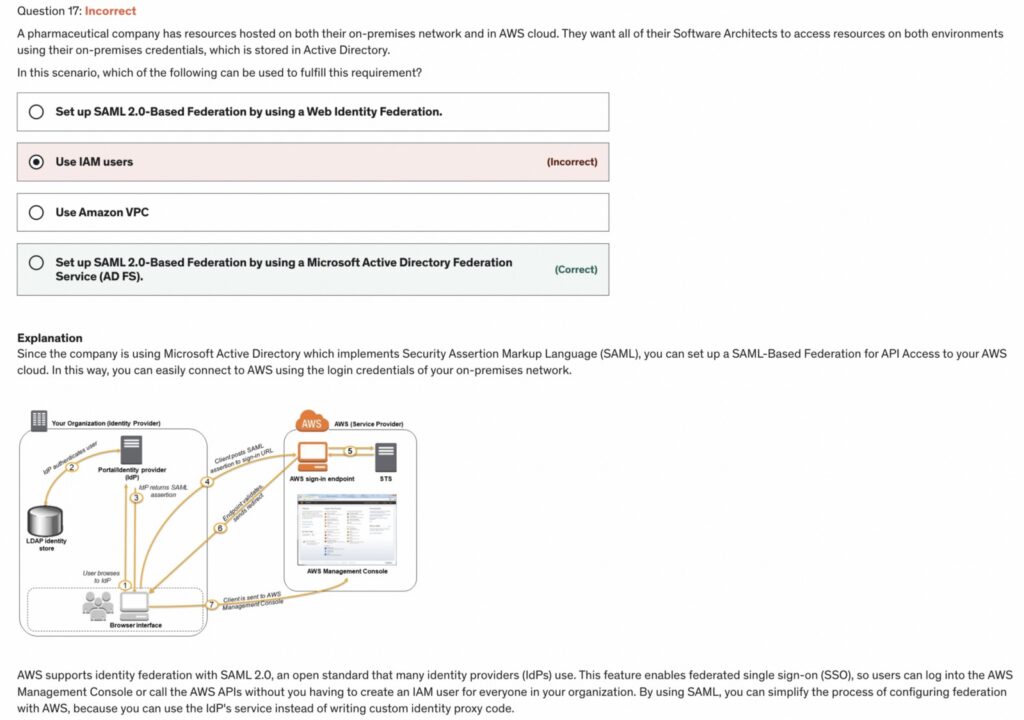
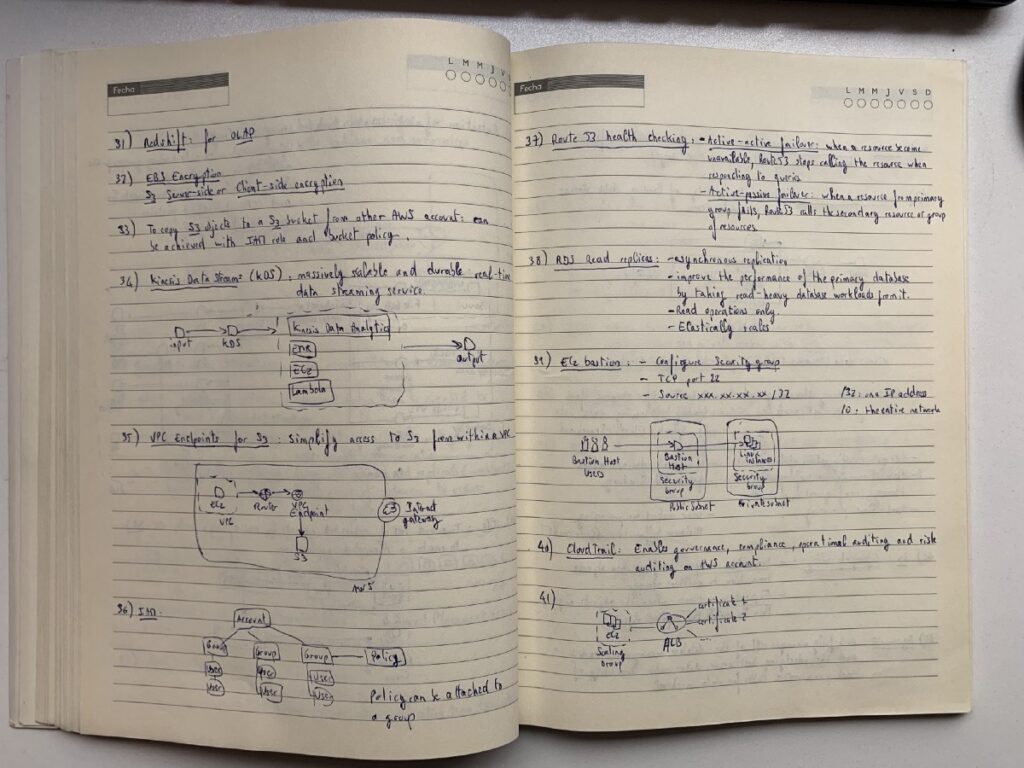
Sometimes, just reading and taking notes is not enough. If you feel that you have too much lack in a particular AWS service, you can open the AWS management console and practice for real.
So I continued with the second practice exam, and I got the following result:
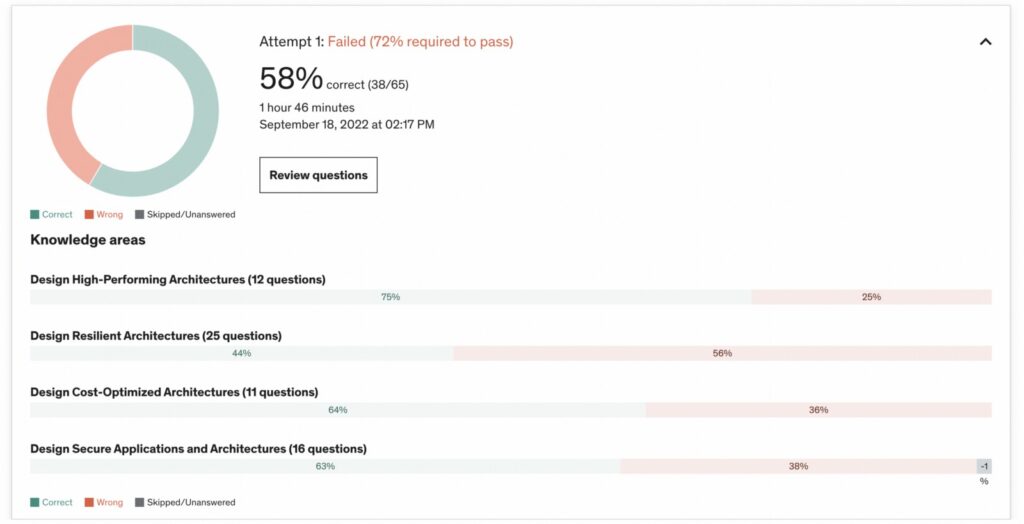
Much better! I still have not passed the exam, but I could see a significant improvement. My method seemed to be working.
In the meanwhile, I was told that the company where I work offered ACloudGuru licenses for its employees. ACloudGuru provides high-level content for people interested in taking certification exams on the main cloud platforms. Good for me, the plans are expensive.
After my boss gently gave me a license, I enrolled in the ACloudGuru course related to the certification I wanted. The course offers 45 hours of videos, including labs with real exercises on an AWS sandbox account and four practice exams.
Once I finished the course, I took the ACloudGuru and Udemy practice exams alternately, and surprise, I got good scores in the ACloudGuru exams and not-so-good ones in the Udemy exams:
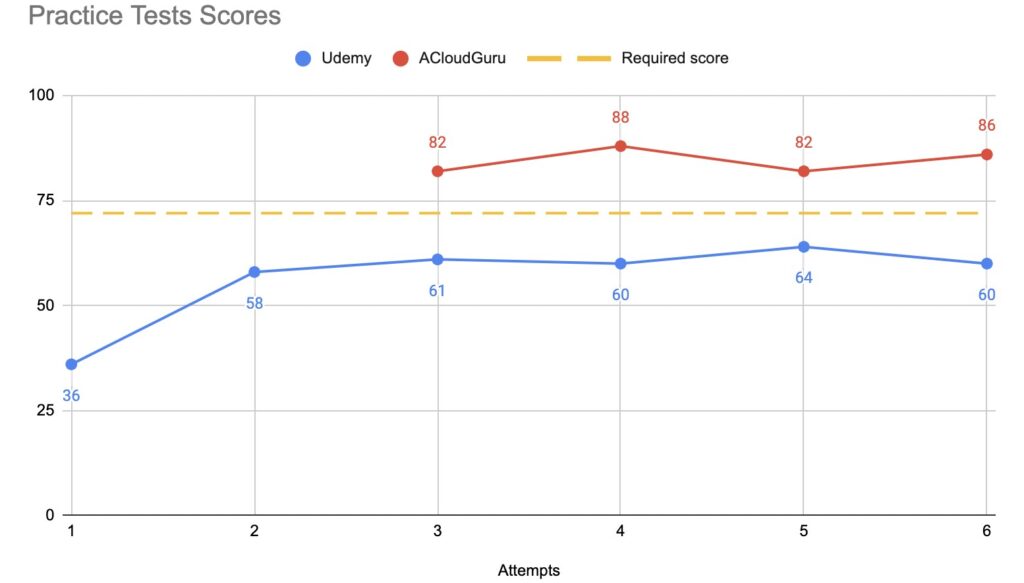
According to Udemy, I needed to practice more, but according to ACloudGuru, I was ready for the real exam. What a dilemma!
I could not remain with the doubt as to whether I was ready or not. So before the year concluded, I decided to take the real exam.
Taking the AWS Certified Solutions Architect — Associate Exam
The process is very simple.
On the aws.training website, create an account if you don’t have one. Be careful: your first name and last name in your AWS Certification Account must match the identification (ID) you will present at your exam appointment (the middle name does not matter).
Then, you can schedule a new exam in the “Exam registration” section of your dashboard.
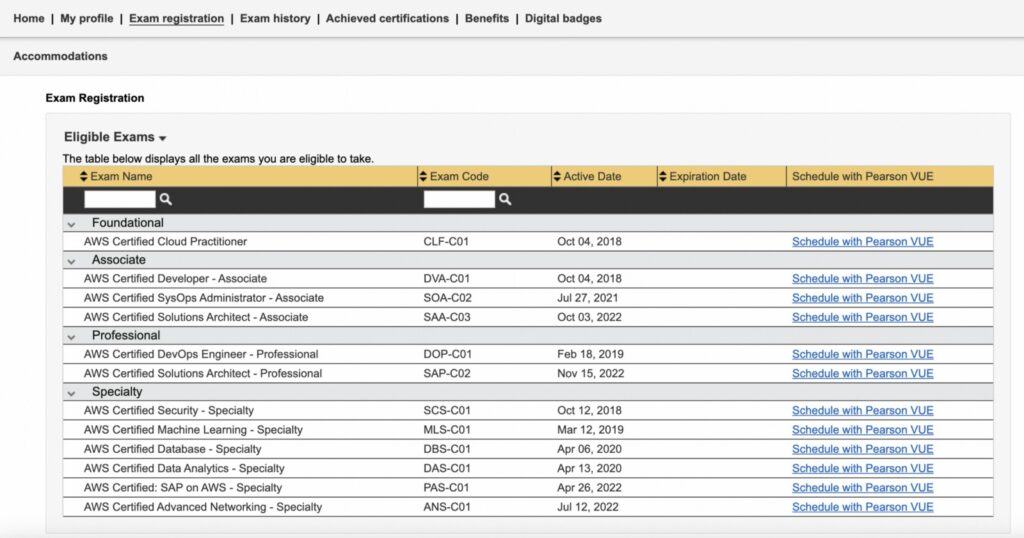
Depending on the country you live in, you can take the exam online, or in an exam center. I decided to take the exam from the comfort of my home. The process is the following: you will download and install the software OnVue which will basically block your screen and applications during the exam. Your screen will be shared with a proctor who could interact with you if something happens.
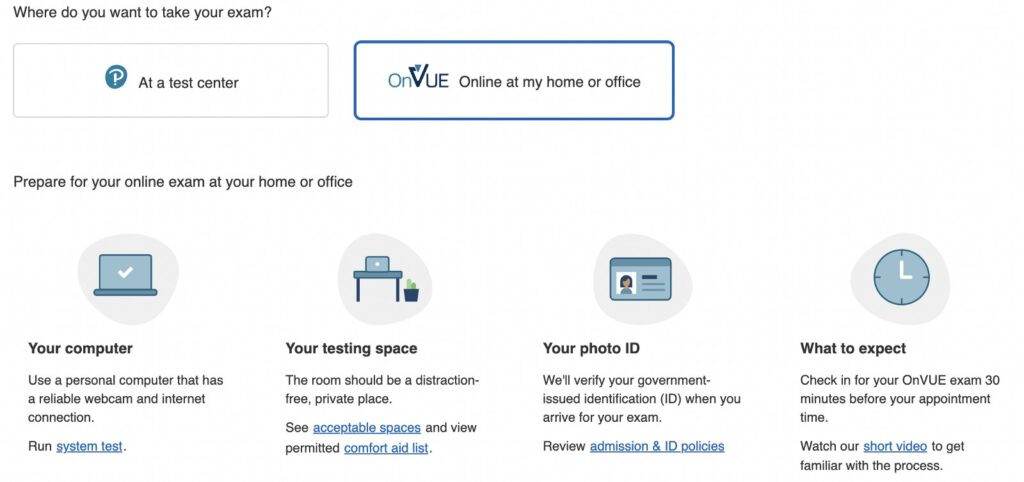
Then, you will then be asked for the preferred language for the exam and for the proctor to speak and, at least, select your appointment. Don’t worry: there are always available appointments for the next day with a large number of available times.

Once you book the appointment, you have to pay (150USD in my case).
On the day of the exam, you will need the following:
- An old-school webcam connected to your computer or laptop: the proctor asked me to show him around the room and under the desk.
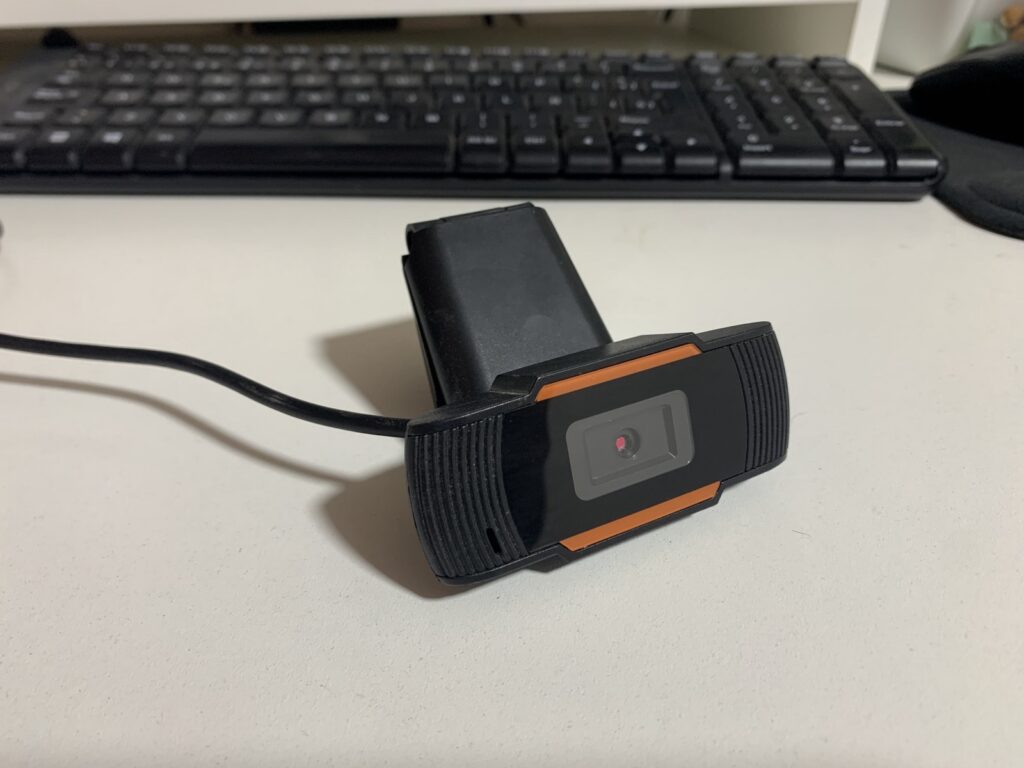
- A clean environment: your desk or table should be free of any objects or electronic devices. I always work with a PC monitor for dual-screen; the proctor asked me to disconnect the cables of the screen in front of the camera.
- A quiet environment: you should be alone in the room. You can be disqualified if the proctor hears other people’s voices or even if you are talking to yourself loudly.
- Remain seated and visible on the cam: you can’t stand up or leave the room. During a few seconds, only half of my face was visible on the camera, and the proctor gently asked me to remain visible.
Thirty minutes before the exam, you will be asked to connect to OnVue and take pictures of your Desk and your ID.
Once I finished the exam, I was not sure how I did it. The exam seemed to be easier than the Udemy practice tests but much harder than the ACloudGuru ones.
The Final Result
Once you have taken the exam, you won’t receive the results instantly, but in a maximum of five working days. In my case, I received an email the next day:

OMG, I was so happy! I passed on the first attempt! Additionally, I received an email with my badge on Credly, which is very useful when you want to share your certification on social media (LinkedIn has a direct integration with Credly).
After this good news, I wonder how I really did it, and I looked for my exam score. In your AWS certification dashboard, in the Exam history section, you can download a report for each exam you passed.
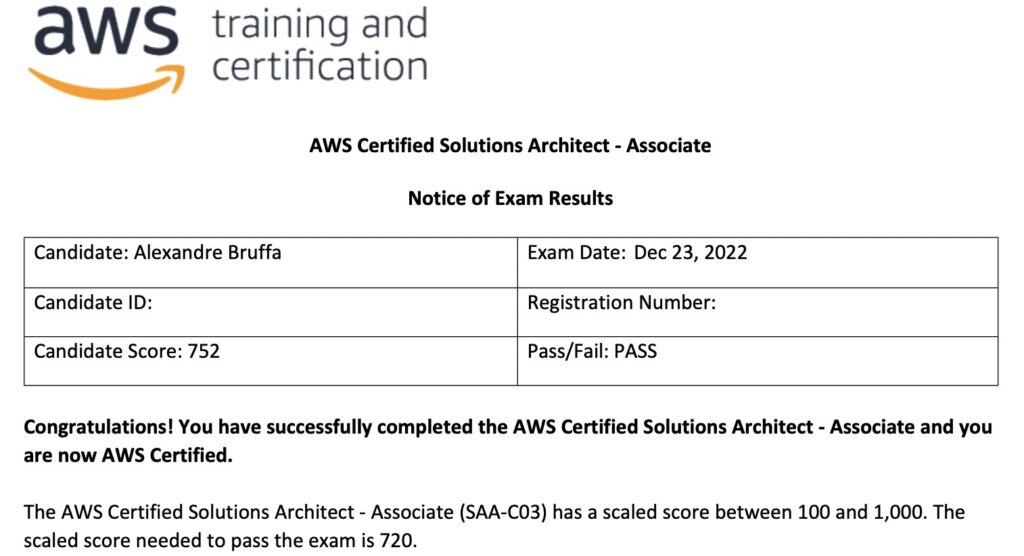
I got 752 out of 1000, which means 75%, so close to the required score!
Closing Thoughts
The whole process of getting an AWS certification took me around three months, and it really worth it. I feel that my AWS skills improved a lot; I could go deeper into the services I already knew, and I had the opportunity to discover new services such as EMR or Neptune.
Next step, the Professional Certification!
I hope that this article could help you if you are thinking of getting AWS certified, and convinced you to begin the certification journey!
A special thanks to Gianca Chavest for designing the awesome illustration.
